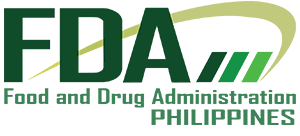Food and Drug Administration (FDA) Director-General Nela Charade G. Puno last week called on women to have regular breast examinations, saying “early cancer detection can save your lives”.
Puno made the remarks as she announced that her doctors have agreed to let her resume her regular work routine after a brief rest following her breast surgery. This came after she was diagnosed with breast cancer early this year.
According to Puno, her successful bout with the Big “C” proved the value of regular medical examinations and the benefit of early cancer detection.
“Surgery practically rids the patient of the cancer which is why I elected to go for one immediately,” Puno explained. “Subsequent treatments are meant to ensure that the possibility of recurrence is eliminated or, at least, diminished,” she added.
“I am fortunate to have discovered the cancer early and to benefit from available medical intervention,” Puno said. “Had it not been discovered early, the effectiveness of cancer treatments would have been significantly reduced,” she explained.
Puno explained that the occurrence of breast cancer are triggered by various causes.
“Unfortunately, the primary risk factor is just that – being a woman,” she said. Other risk factors include obesity, lack of physical exercise, diet choices and lifestyle.
“Medical experts estimate that about 10 percent of the cases of breast cancer in women are due to genes,” Puno said. “In other words, it is hereditary which was what happened in my case,” Puno pointed out.
“My bout with cancer was due to what are called ‘fixed risk factors’, or those over which an individual can do nothing about,” she said. The other set of risk factors are “modifiable”, which means their effect can be reduced by changing certain things like diet and lifestyle.
“There were earlier concerns that work pressure may have triggered the development of cancer in me,” Puno recalled. The FDA head had said she had just been through a “tough year”, having laid down major reforms in the agency she heads.
The pharmacy board examinations topnotcher related that she had just overhauled many of the crucial public service systems and processes in the FDA.
Among these were the reduction of the time required to process applications, particularly for certificates of product registration (CPR). Puno also instituted a centralized system for receiving and distributing documents within the organization, as well as a process for releasing them. She explained that this was necessary to ensure that the FDA is “liberated from undue influence and pressure from brokers and fixers”.
Puno also directed massive operations against manufacturers and retailers of fake, counterfeit and unregistered drugs and wellness products since these exposed the public to serious health risks. The operations netted close to P80 Million in confiscated goods within a one-year period.
“While these were really high-pressure tasks, my doctors said they had nothing or little to do with the onset of breast cancer on my part,” Puno clarified. “The vulnerability of my situation was due more to the fact that the risk runs in our family,” she said.
Women diagnosed with breast cancer have choices as to their preferred surgical intervention, Puno said.
“At the end of the day, this requires a serious discussion between patient and doctor with the patient making the final decision based on clear options.
“Modern medicine has expanded the range of options beyond chemotherapy and radiation therapy for the post-surgery stage,” Puno explained. Do not also discount the importance of getting a second medical opinion, she advised.



